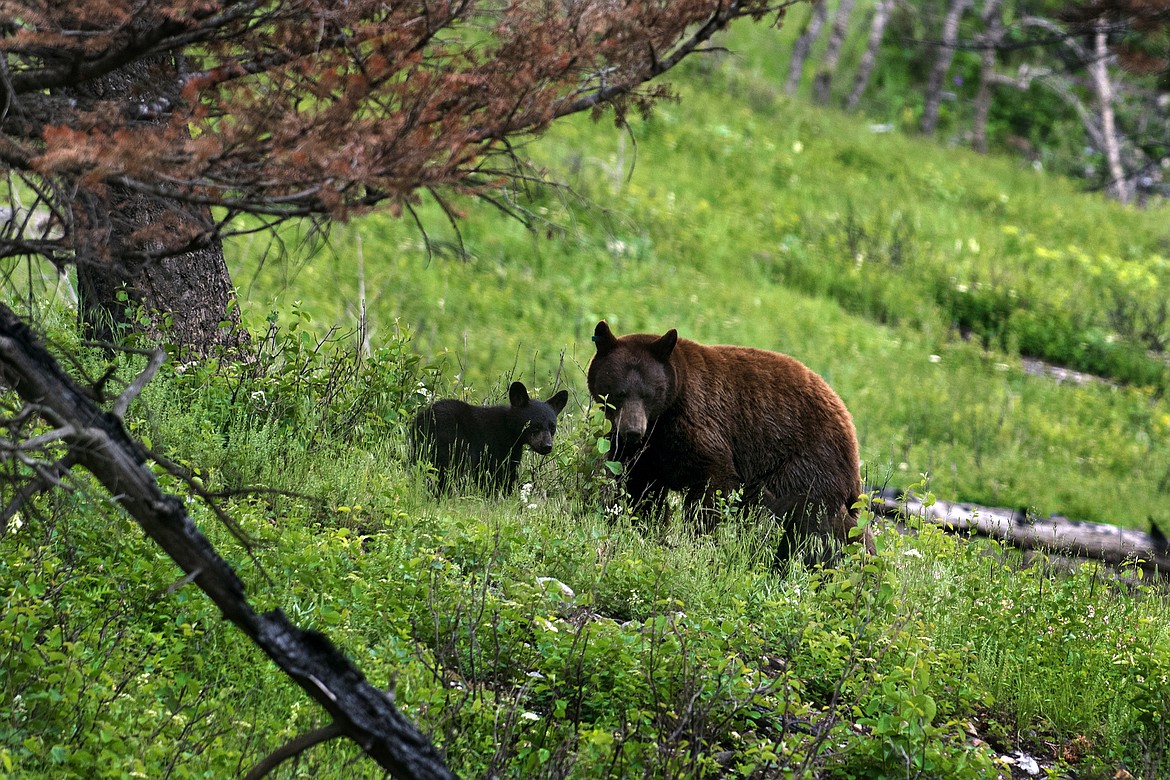Helping keep visitors safe and bears wild
Montana has become one of the most desirable places to visit and recreate in the country. With so many ways to book vacation rentals, including VRBO, Air BnB, Hipcamp, and others, it’s easy to find and to offer a place to stay. But numerous visitors can present both benefits and challenges. Vacation rentals have become an important contributor to local economies, partially because of our natural surroundings and abundant wildlife.
To ensure guests are safe and understand how to be in bear country, we need to give them some resources.
As the number of people renting vacation homes increases and grizzly and black bear populations expand across the landscape, we need to help visitors stay safe, take care of property, and help bears stay wild. People and Carnivores—a Bozeman-based nonprofit that helps people and large carnivores coexist—has put together a series of “toolkits” to help those renting, visiting, and living in bear country stay safe and keep bears wild.
Bears travel using their noses to find food, which as omnivores means they will eat natural and non-natural foods. Natural food sources include wild berries, grasses, insects, wildlife carcasses, pine nuts, fish, and more. Non-natural food sources range from garbage and pet food to birdseed and small livestock and crops (chickens and fruit trees, for example). For bears that happen to come through residential areas, it can be much easier for them to snack on non-natural food sources than to “hunt” for their wild foods.
Once a bear accesses the easy meal, they’re hooked and likely to look for more. This can bring them near people and developed areas, creating the risk of human encounters, property damage, and bears getting killed.
Unlike many hotels or RV parks, vacation rentals tend not to have a display of brochures about local wildlife and bear safety. Northwest Montana contains one of the most robust populations of grizzly bears in the lower United States and with both grizzlies and black bears expanding their ranges, we need to support responsible and safe lodging and recreation, including bear safety, property protection, and the management of attractants around a guest home that may draw bears in.
The leading attractants at a vacation rental home are garbage (overfilled, not being secured, and staying outside overnight); and food items and coolers being left outdoors as well as dirty grills. If visitors head to the trails, they should take bear spray and know how to use it, and practice proper food storage with lunches and snacks.
To provide information to guests, property owners, and managers, the toolkit includes tips for rental owners to create a bear-safe vacation rental, a flier for the unit about being in bear country, a fridge magnet about securing food and garbage attractants, and a sticker to ensure bear-resistant canisters are being used properly. Kits also include a bear-resistant trash can rebate for owners to make the purchase of a can a little easier.
The idea is to make sure everyone at the rental has access to information about bear safety. Beyond this, the Interagency Grizzly Bear Committee has a list of certified bear-resistant products such as garbage cans, coolers, and storage containers to help mitigate bear conflicts. The list can be found at igbconline.org.
Because bears are moving around, permanent Montana residents are also having more bear encounters. To help these property owners, People and Carnivores’ residential toolkit aims to help Montana homeowners and residents as well, with information about how to secure bear attractants, a checklist of attractants that might be around the house, canister rebates, and other resources on living with bears.
If you’re interested in vacation rental or residential toolkits to promote bear coexistence efforts, please email info@peopleandcarnivores.org.
For more information on different ways to reduce conflicts between bears and people visit www.peopleandcarnivores.org.


